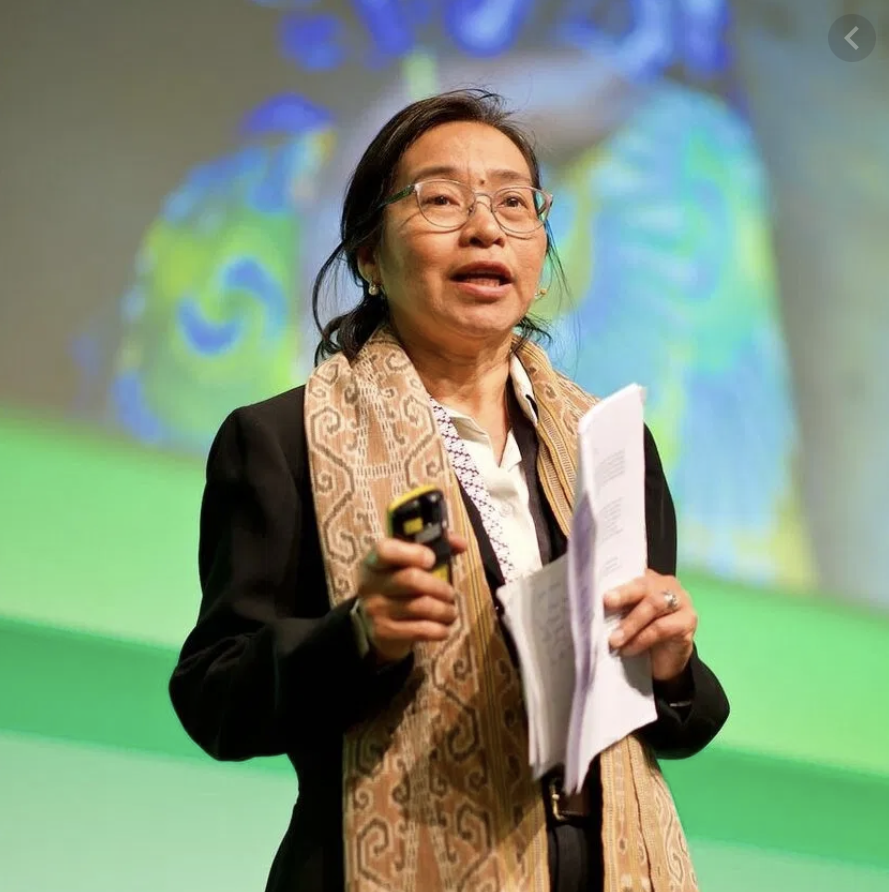2021-07-14
By Nonette Royo
In mid-2020, as the coronavirus pandemic sent societies and economies all over the globe into lockdown, urban informal labourers found themselves suddenly jobless, and unable to feed their families. As the fragility of the world order was shockingly exposed, Indonesian partners did the unexpected: they loaded trucks and pick-ups with surplus harvests from their tenured territories, and sent them towards organised labour networks in the big cities, to support those who had been left with nothing.
Similarly in India, when the factories closed without warning, millions were welcomed back and cared for in their villages. Throughout the world, Indigenous Peoples and local communities cared for each other where states failed, with everything from healthcare and protective equipment, to information, food and shelter.
Such solidarity is nothing new: as communities, through their stewardship of each other and of the natural world, their protection of forests on which the health of our planet depends, and their courage as land defenders against illegal incursions and habitat destruction, Indigenous Peoples and local communities have already been tested.
Sadly, up to now, this is not valued, nor adequately financed. In the last decade, according to research by Indufor, a leading forest consulting firm, tenure rights and forest management projects have received just 1% of all funding for climate mitigation and adaptation: that’s a paltry US$260 million per year.
The Rights and Resources Initiative estimates that US$8 billion could scale up tenure rights across 24 tropical countries. In the last decade, financing for strengthening land tenure has totalled a mere 3% of this figure.
Where funding does exist, and despite years of credible work defending forests, these funds rarely go directly to indigenous and local organisations. This needed to change: a dedicated financial mechanism was requiredto help structure larger and direct funding supporting strengthened land rights and governance initiatives carried out by indigenous and local organisations. This also prepares these organisations for engaging with thewider community of donors, partners, investors.

"I hope 2021 can be a turning point, with more donors, NGOs and governments committing to sustained financing, respectful and regenerative partnerships with indigenous and local organisations working to strengthen land rights."
The Tenure Facility is designed to break new ground. Over 80% of our funding goes to indigenous and local organisations to support their visions and amplify their expertise. This has been done side by side with Indigenous Peoples and local communities. We are building trust-based and equitable relationships with our partners. They are shaping policies and designing projects that are appropriate to them, and their worldview. In just five years, our partners have achieved the titling of over 3.5 million hectares of land and forests, advanced collective tenure security over more than 11 million hectares of land and forest and strengthened protection over 2.4 million hectares of forest categorised as a reserve for Indigenous Peoples living in voluntary isolation or initial contact, benefiting approximately 4 million people.
As we all look forward towards an expected post-pandemic economic recovery, this sense of solidarity will be tested once again. Amidst what is likely to be fierce competition for funding and attention, how can humanity “build forward” better, to create a more just and sustainable world, where rights are respected, and nature valued? How can we all face the huge challenges posed by climate change, biodiversity loss, poverty, injustice and marginalisation with new zeal, open-mindedness and humility?
I hope 2021 can be a turning point, with more donors, NGOs and governments committing to sustained financing, respectful and regenerative partnerships with indigenous and local organisations working to strengthen land rights.
There is real urgency: without their rights to land, territory and resources, Indigenous Peoples and local communities could literally lose ground, and with it their ability to shape and model the future on territories that are integral to their own culture’s existence as well as all humanity’s survival. The loss of these lands inevitably tips communities into poverty and dependence, dries up generations of traditional knowledge, and with it, vital forestlands and natural habitats, which are crucial to meeting international environmental commitments to limit global warming.
We can avoid this. I remain hopeful that far better times lie ahead, and I am sure we can get there faster if we work together with Indigenous Peoples and local communities. They are the environmental guardians and the rightsholders of their ancestral lands. By accompanying them, we all stand to gain.
Nonette joined the Tenure Facility as an Executive Director in October 2017. She is a lawyer, and a specialist for Indigenous Peoples, natural resources and land rights in South East Asia, with over 25 years experience.
Other Blog Posts
Categories: